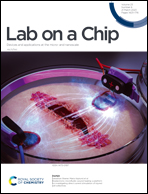Meta optimization based on real-time benchmarking of multiple surrogate models for autonomous flow synthesis†
Abstract
Optimizing a wide range of reaction parameters, steps, and pathways is currently considered one of the most complex and challenging problems in microflow-based organic synthesis. As a novel solution, Bayesian optimization (BO) has been utilized to efficiently guide the optimized conditions of flow reactors; however, the benchmarking process for selecting the optimal model among various surrogate models remains inefficient. In this work, we report meta optimization (MO) by benchmarking multiple surrogate models in real-time without any pre-work, which is realized by evaluating the expected values obtained by the regressor used to build each surrogate model, enabling efficient optimization of reaction conditions. By the comparison of the performance of MO with that of various BOs on four datasets of different flow syntheses, it was verified that MO consistently performs the best-in-class for all emulators developed through machine learning, while the conventional BOs based on surrogate models such as the Gaussian process, random forest, neural network ensemble, and gradient boosting demonstrated varying performances from each emulator, which implies that benchmarking is required.

- This article is part of the themed collection: AI in Microfluidics


 Please wait while we load your content...
Please wait while we load your content...